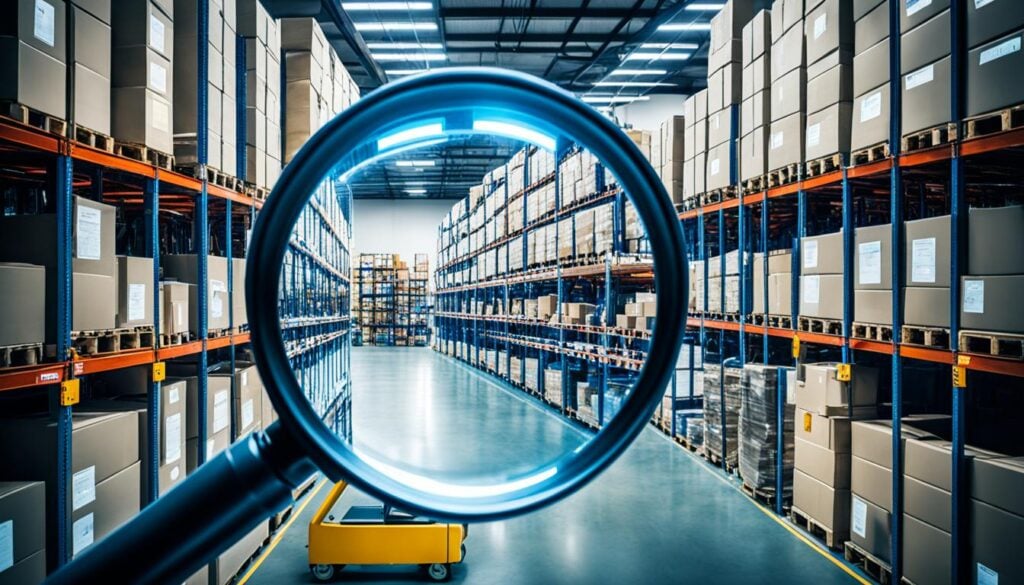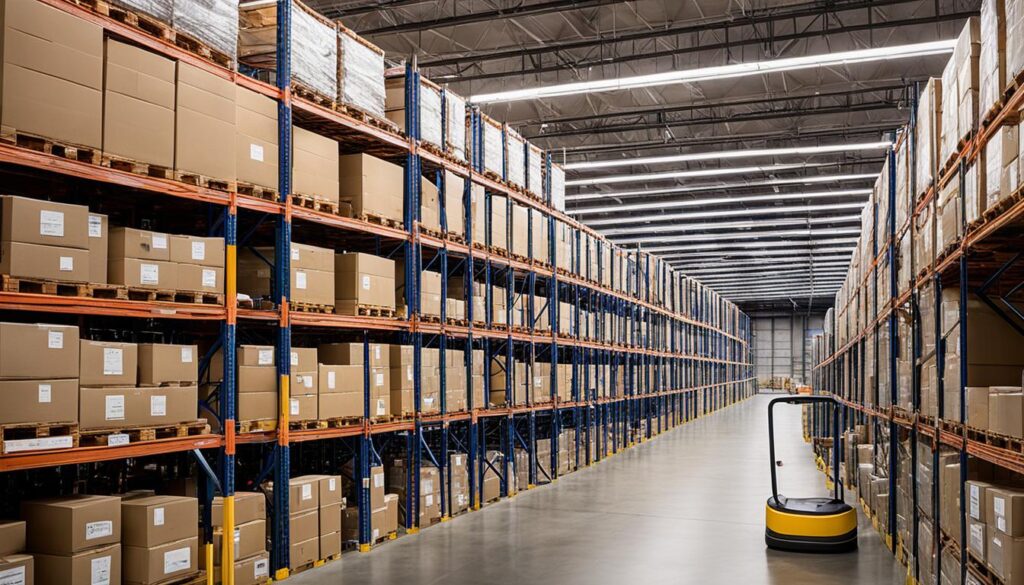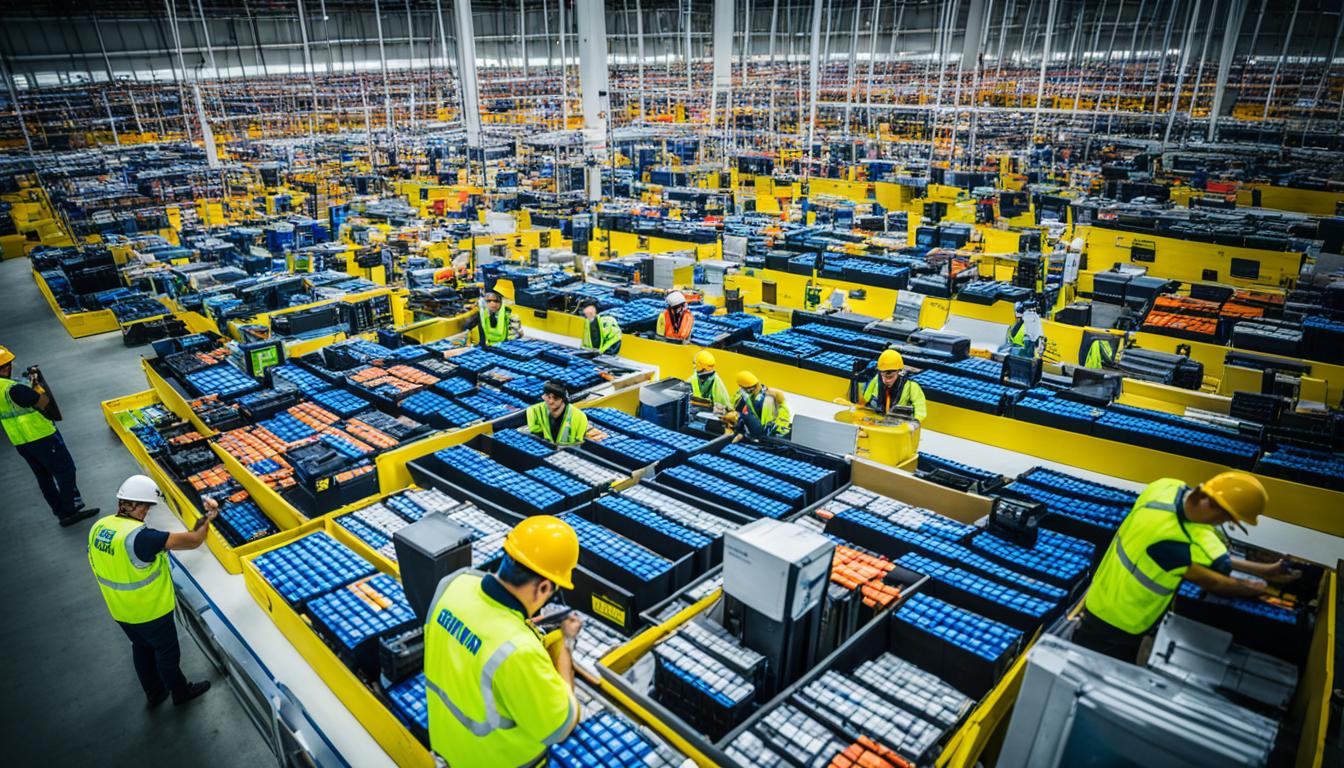Warehouse audits are an essential aspect of maintaining operational efficiency and compliance within the logistics sector. By conducting regular audits, businesses can identify areas for improvement, address operational problems, and measure their performance.
In this article, we will provide you with a step-by-step guide, highlight the significance of warehouse audits, and explore the numerous benefits they offer. Let’s dive in and discover the importance of conducting warehouse audits in Singapore for your business.
Warehouse audits are instrumental in ensuring the smooth functioning of your warehouse operations. They help businesses optimize efficiency, adhere to safety regulations, and enhance overall supply chain management.
Whether you are a small business or a large corporation, a well-executed warehouse audit can make a significant impact on your bottom line. It allows you to assess various aspects of your operations, identify areas of improvement, and implement necessary changes for continuous improvement.
What is a Warehouse Audit and its Significance in the Supply Chain?
A warehouse audit is a systematic process that involves assessing various aspects of warehouse operations to ensure efficiency, safety, and compliance. It includes evaluating safety practices, inventory management, receiving and shipping operations, housekeeping, and maintenance.
Warehouse audits are significant as they help businesses identify areas for improvement, track performance, and ensure compliance with regulations. By conducting regular warehouse audits, businesses can optimize their warehouse operations and achieve better overall supply chain management.

Step-by-Step Guide to Conducting a Warehouse Audit
Conducting a warehouse audit is a multifaceted process that involves several steps to ensure a thorough assessment of your warehouse operations. By following these steps, you can identify potential areas for improvement, enhance efficiency, and maintain compliance with regulatory standards.
Determine What to Audit
The first step in conducting a warehouse audit is to determine the specific areas that will be audited. This includes evaluating various aspects of your operations, such as safety protocols, cleanliness standards, standardization of processes, utilization of technology, inventory management, and staff training.
Observe Warehouse Operations
Once you have identified the areas to be audited, it is essential to observe your warehouse operations in real-time. This involves closely monitoring processes, documenting workflows, and noting any potential inefficiencies or deviations from standard operating procedures.
Interview Staff
In addition to observing operations, it is crucial to conduct interviews with your warehouse staff. This provides valuable insights into their perspective and allows you to gather information about potential challenges they face and areas where improvements can be made.
Evaluate the Results
After gathering the necessary data from observations and staff interviews, it is time to evaluate the results. Analyze the findings and identify any gaps or areas that require immediate attention and improvement. This step involves comparing the current state of operations with industry best practices and regulatory standards.
Implement Improvements
Once you have evaluated the results and identified areas for improvement, it is important to implement the necessary changes. This may involve revising processes, updating safety protocols, investing in new technology solutions, providing additional staff training, or any other action required to optimize your warehouse operations.
It is recommended to conduct warehouse audits on a regular basis, depending on the size and complexity of your warehouse. By doing so, you can ensure that your operations are continuously monitored and improved, leading to enhanced efficiency, cost savings, and better overall performance.
Benefits of Conducting Warehouse Audits
Conducting warehouse audits offers numerous benefits to businesses in Singapore. Increased sustainability is one of the key advantages. By identifying areas for improvement in energy consumption, waste management, and resource utilization, businesses can make informed decisions to minimize their environmental impact.
This not only helps preserve valuable resources but also aligns with Singapore’s commitment to sustainability and responsible business practices.
Another significant benefit of warehouse audits is reliable data gathering. Accurate inventory tracking and performance measurement are essential for effective warehouse management.
By conducting regular audits, businesses can ensure that the data they rely on for decision-making is reliable and up-to-date. This improves operational efficiency, enables better demand forecasting, and facilitates informed decision-making.
Cost reduction is a critical aspect of warehouse audits. By identifying operational inefficiencies and implementing improvements, businesses can significantly reduce costs and increase their bottom line.
Whether it’s optimizing storage space, streamlining processes, or identifying opportunities for automation, warehouse audits play a vital role in driving cost savings and improving overall profitability.
Furthermore, warehouse audits are essential for ensuring warehouse safety and compliance with regulatory standards in Singapore. By assessing safety practices, equipment maintenance, and adherence to regulations, businesses can mitigate potential risks, protect their employees, and avoid legal liabilities.
A comprehensive warehouse audit helps establish a culture of safety and compliance, ensuring a secure operating environment for both the workforce and the products stored.

Implementing Warehouse Audit Findings for Continuous Improvement
Once you have conducted a thorough warehouse audit and identified areas for improvement, the next crucial step is to implement the findings effectively. By implementing appropriate strategies and solutions, you can achieve continuous improvement in your warehouse operations, leading to enhanced efficiency and overall performance.
To streamline your warehouse operations and improve accuracy, consider integrating technology solutions such as a Warehouse Management System (WMS). A WMS can automate various processes, optimize inventory management, and provide real-time data insights, enabling you to make informed decisions and improve overall operational efficiency.
This technology integration can help you achieve greater accuracy, minimize errors, and streamline workflows, resulting in improved productivity and customer satisfaction.
In addition to technology integration, investing in staff training programs is essential to ensure that your employees are equipped with the necessary skills and knowledge to implement new processes and procedures.
Through comprehensive training, your staff will be able to adapt and embrace the changes brought about by the audit findings, and effectively implement the recommended improvements.
Continuously monitoring and tracking the implementation of audit findings is vital to measure the effectiveness of the improvements and identify any further areas for enhancement.
Implementing regular reviews and evaluations will allow you to identify any potential gaps or challenges that may arise during the implementation process. By doing so, you can make any necessary adjustments to ensure that your warehouse operations are continuously optimized.
By implementing the findings from your warehouse audit, integrating technology solutions, providing staff training, and continuously monitoring your operations, you can achieve continuous improvement in your warehouse management.
This holistic approach will lead to enhanced productivity, reduced costs, and improved customer satisfaction, positioning your business for long-term success in Singapore’s competitive logistics sector.
The Role of Technology in Warehouse Audits and Future Trends
Technology plays a crucial role in optimizing warehouse audits and enhancing efficiency, and accuracy. One of the key technologies that assist in warehouse audits is the Warehouse Management System (WMS).
A WMS automates processes, captures real-time data, and provides analytics and reporting capabilities. By leveraging WMS and other cutting-edge technologies, businesses can conduct more efficient and accurate audits, ensuring optimal warehouse performance.
One of its key advantages is the receiving control system, which integrates barcode tracking software into a centralized management system. This enhances operational efficiency, ensuring a smoother and more accurate receiving process for optimized warehouse management.
Looking ahead, the future trends in warehouse audit technologies are set to revolutionize the industry. Advancements in data analytics enable businesses to gain actionable insights from large datasets, empowering them to make informed decisions and drive continuous improvement.
Artificial Intelligence (AI) integration will enable intelligent automation and predictive analysis, enabling businesses to proactively identify potential issues and optimize operations.
Additionally, the Internet of Things (IoT) integration will enhance connectivity and streamline operations, allowing for real-time monitoring and inventory tracking. Embracing these trends will enable businesses to stay ahead in Singapore’s logistics sector.
In conclusion, the role of technology in warehouse audits is undeniable. Warehouse management systems and future technologies such as data analytics, AI, and IoT integration are transforming the way audits are conducted, making them more efficient, accurate, and insightful.
To thrive in the competitive landscape of the logistics industry, businesses in Singapore must embrace these trends and leverage technology to optimize their warehouse management processes, drive continuous improvement, and stay ahead of the competition.
Warning: Undefined array key "med" in /home/hashmicr/public_html/blog/wp-content/plugins/insert-headers-and-footers/includes/class-wpcode-snippet-execute.php(419) : eval()'d code on line 281















